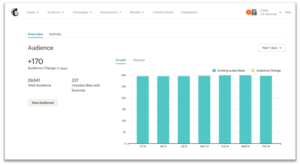And no…it’s not tax evasion.
Do you remember what you were told about taxes as soon as you became old enough? I do.
“Just be happy you have a paying job to contribute!”
“It’s how the government runs this country efficiently!”
Honestly, I used to believe all of that.
Back when I was in finance, I was famous for using this annoying exclamation. “Yay, it’s tax day!” The rest of the office, not so thrilled. I felt this sense of wonder and honor at being able to “contribute” to our country. I had never seen real money previously. My family was so proud that I worked on “Wall Street,” a lauded place we thought was reserved for elites, not us normal, children of immigrants.
But I wasn’t just normal anymore. Now I was able to pay more taxes than I ever even dreamed of earning. Kinda cool. I’ve spent most of my adult life in emerging markets, both as a business builder and a journalist. I’ve seen how amazing this country is and how incredibly lucky we are to live here. I’ve also seen the darkness. Make no mistake, we are the light.
But the winds are fickle and tides change. As we age, we experience one of life’s greatest ironies and gradually lose the naive innocence of our youth. And once our rose-colored glasses turn clear, we begin to see reality for what it truly is.
Hint. It’s almost always ugly. Just like these charts will show you.
The truth is US taxes are at all-time highs.
Trust in our institutions is at an all-time low. (Source: Edelman Trust Barometer).
And to top it all off, 50% of taxpayers pay 97% of all taxes.
While billionaires may have incredibly complex and clever ways to not lose almost 50% of their income to the government, we normal folk don’t.
Here’s my rub:
We live in a time where many of us don’t even bother to resist the excessive tax bills we are slapped with. Why? Because we believe the government has better use for it.
But what is better about relinquishing $1T in munitions to terrorists, most of which was paid for by our tax dollars over the last 20 years? What is better about literally arming the enemy that may come knocking on our door tomorrow? What is better about the government on BOTH sides deciding to increase their pay, along with regulations and taxes?
Financial freedom is the first of three that we teach here in Contrarian Thinking.
And while a significant portion of it entails regaining control of your income sources and building wealth on your terms, it also includes plugging the holes through which you lose money. Especially to wasteful institutions.
Ponder these words of the past:
“We contend that for a nation to try to tax itself into prosperity is like a man standing in a bucket and trying to lift himself up by the handle.”
― Winston S. Churchill
“There is no worse tyranny than to force a man to pay for what he does not want merely because you think it would be good for him.”
― Robert A. Heinlein
It ultimately comes down to the realization that the power to tax is also the power to destroy. So we must be careful about what we allow others to take from any of us.
And that’s what we’ll be discussing this week. How to NOT OVERPAY your fair share.
Meet Mitchell Baldridge
With a CPA and CFP under his belt, Mitchell has had his nose in balance sheets and P&Ls for the last 15 years. And we aren’t just talking about once-in-a-blue-moon tax returns for your everyday 9-to-5 white-collar employee.
We are talking big leagues. From wealthy families with trusts that can run a small country to general partners with unbelievably illiquid assets, Mitchell has seen them all. Plus, he does taxes for our mutual friend Nick Huber. So, that’s a bonus!
(He’s also pretty amazing at Twitter.)
He and I chatted about what new entrepreneurs miss from a tax standpoint. And he was more than happy to share his best tips on how you can keep more of what you make.
Or not make. I’ll explain in a bit.
DISCLAIMER: NO ONE BUT YOUR ACCOUNTANT CAN GIVE YOU TAX ADVICE. I’m not one and neither is Mitchell. Soooo, while these are ideas we use, consult with your own CPA.
Enter Maslow’s/Mitchell’s Hierarchy of Tax
While the Hierarchy of Tax may have Maslow’s name, it’s actually Mitchell’s brainchild. After decades of being in the tax trenches, he documented his blueprint that’s helped his clients save millions.
Maslow’s Hierarchy of Tax comprises only five levels. Each one corresponds with the maturity of your business/income, with Level 1 being the starting point for new ventures and Level 5 being…well, batshit crazy money. So if you’re big-time, scroll past the first segment.
Maslow’s Hierarchy of Tax
Level 1 – Get Clean
To erect a new building, you first need to clean the entire site. Taxes have an echo.
Before you can even think of keeping Uncle Sam’s phalanges off your dollars, you must first clean out your closet.
First steps are simple…
- Segregate your business data.
The first step to reducing your taxes is something you’ve probably heard before. Isolate your business expenses.
Nothing good ever comes out of charging your groceries and printer toner to the same credit card. That’s why it’s always best for your business to have its designated bank account and credit card.
Mitchell calls this ‘Good Hygiene’. Allow your business to carve out its own world. That way, when it’s time to build your books, your business expenses would be in one tidy place. Not scattered across 15 cards and interspersed with charges from Walmart. You may think being disorganized is normal for a new biz but take it from someone who’s bought 100+ businesses. It isn’t.
Next step.
- Hire a bookkeeper
As business owners, we’ve all been penny-pinchers at one time or the other (Guilty!)
But when it comes to maintaining good tax hygiene, you may want to loosen your purse strings a bit.
Sure, a decent online bookkeeping service will cost you $2500 – $3500 a year but it’ll save you thousands more down the line.
And if you can’t afford that? Frankly, you don’t have a business. You have a job.
- Avoid monthly recurring costs
Yes, yes…I know that this somewhat contradicts the ‘hire a bookkeeper’ ideology. But as with most things in life, business expenses are all about finding a balance.
While I stand by the fact that you do need a bookkeeper, you most certainly don’t need a $60 monthly phone plan for your office when all your comms are done via Slack.
Why? Because new businesses and recurring costs don’t go together. A measly $70 monthly charge may not seem like a big deal in isolation. But add it up over a year, maybe even two, and you’ll see how it snowballs into $5k at 6x EBITDA. Not ideal
When asked about this, Mitchell’s advice was brutally honest.
Be cheap. At least until you have leverage.
Next,
- Maximize your already-existing deductions.
Home office deduction? Self-employed contractors can deduct up to $5k in business costs.
It’s shocking how much we leave on the table when filing our taxes. That’s why we take an ENTIRE DAY every year to walk through all our expenses and deductions with our accountant.
Because nine times out of ten, chances are you are missing some. Oh, and don’t use Turbotax… amateurs.
Level 2 – Find Shelter
Time to level up.
But when is the precise time to do that?
Right about the 32% tax rate bracket. Once you hit $165k as a single person or $326k as a married couple, you must find ways to not make money.
And of course, he revealed the most efficient tax shelters that help you do that.
- Set up an LLC taxed as an S-Corp
Setting up an LLC isn’t a requirement for when you’re starting a new business but once you hit $50k in revenue, it kinda becomes a must-have.
C-Corp is 21% tax rate. S-Corp is passthrough. The savings is a delta of self-employment tax between salary and 130k, these are your first lines of defense against excessive taxation.
- Buy an office building.
Offices are just about the only sector of real estate that is at a discount right now (depends on where and when do your own DD). With low-interest rates and flowing capital, debt is more plentiful than I’ve ever seen it.
Thanks to cost segregation and bonus depreciation, you can effectively deduct all the capital you invested in the first year.
You don’t have to be a tax pro to deduct the depreciation of your own office.
- Set up a cash balance pension plan
- Set up a DV plan
- Get a bonus-depreciating SUV
Ever wondered why there are so many Lexus GX 460s and Mercedes G-Wagons running around?
Hint. It’s not because their owners love driving around in a lumbering black box. It’s because they are exploiting the Hummer Loophole!
Basically, the word on the street is, all you have to do is walk into a dealership on the last day of the year and get an SUV or truck that weighs above 6000 pounds. Say, a Toyota Tacoma for $57k. If after tax and additional expenses, the total cost adds up to $100k, you could get a tax deduction of $57k. Even if you buy with $0 down.
Level 3 – Buy Stuff
Spending money to make money segment.
- Real Estate
With all its rules, regulations, and whatnots, real estate can be a confusing market. Especially for a first-timer. Mitchell, however, takes all the tips from your favorite RE gurus out there and condenses them into this:
Find an idiot. Buy from him. Then don’t become him.
Level 4 – Plan to Die
Hit $10M+ in net worth? Congrats, it’s time to start thinking about posterity!
If you thought real estate was the best way to secure 8-figures from being nibbled at, you’re in for a shock. While RE was a brilliant plan in Levels 2 and 3, not so much in Level 4. That’s mostly because while estate exemptions are fixed at $20B right now, they are scheduled to be slashed in half by 2026. There’s also much talk of the 1031 Exchange being eliminated. That would be a giant blow to your ability to continue to earn.
- Use Trusts to Estate Plan/Build an intentionally defective grand tour trust (IDGT)
Essentially an estate-planning tool that is used to freeze certain assets of an individual for estate tax purposes, but not for income tax purposes or a 678 trust et al.
Level 5 – Crazy Shit
Here’s where things get wild.
I understand that when many people hear the letters IRS in that order, their stomachs immediately twist into knots.
And that’s fine.
It’s okay to be a little intimidated by the tax boogeyman. It’s certainly non-negotiable to pay what they demand. But what isn’t okay is paying more than what is asked.
And that’s what millions of business owners do. They settle for being docile when they should be doing the reverse. Mitchell even has a quote he often tells his clients.
“You are aggressive and strategic to make money. Why not be the same to save taxes?”
For example, our former President Trump took advantage of the Syndication Conservative Easement and paid only $500 in taxes. (Side note: We’ll go into more detail on that during our Cash flow Call later this month. There are lots of specifics and details surrounding all these options.)
But yeah, there are legal but crazy ways to go bearish on taxes.
- Tax credit.
- Captive Insurance.
- Buy a remote entertainment property for your business.
- Historic Credits.
Keep in mind that not all these options will be applicable to your business. But to find the one or two that fit, you must double down and do your research.
And if you take away only one thing from this week’s newsletter, let it be this.
Question everything and don’t confuse suggestions with laws,
Codie.




